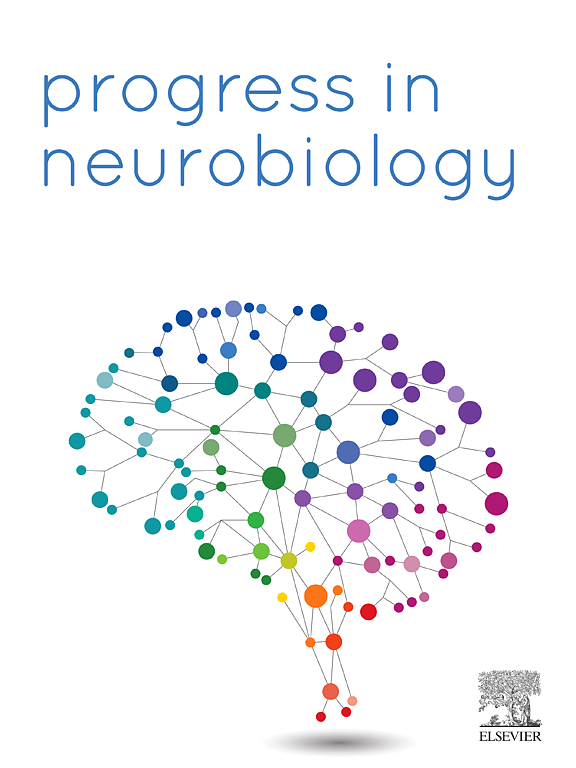星形胶质细胞GluN2A通过钙调神经磷酸酶/NFAT通路调节neprilysin和AQP4,缓解睡眠剥夺诱导的Aβ升高。
IF 6.1
2区 医学
Q1 NEUROSCIENCES
引用次数: 0
摘要
睡眠障碍会增加大脑中淀粉样蛋白(Aβ)的负担,并与阿尔茨海默病(AD)的风险有关。睡眠障碍提高Aβ水平的确切机制尚不清楚。我们之前的研究表明,敲低星形细胞n -甲基- d -天冬氨酸(NMDA)受体GluN2A亚基编码基因Grin2a可加重睡眠剥夺(SD)诱导的a β升高,提示星形细胞GluN2A在SD中的保护作用;但其潜在机制还有待进一步阐明。在本研究中,我们利用SD联合海马星形细胞特异性grun2a敲低或过表达的大鼠模型,以及原代培养的海马星形细胞模型,揭示了星形细胞GluN2A减轻SD诱导的a β升高的新机制。我们发现星形胶质细胞GluN2A主要通过钙调神经磷酸酶/NFAT途径调节降解酶neprilysin和Aquaporin-4 (AQP4)来影响Aβ的降解和清除。我们的研究为星形细胞GluN2A在Aβ消除中的新作用和机制提供了支持证据,这将有助于发现Aβ相关疾病如AD的新治疗策略。本文章由计算机程序翻译,如有差异,请以英文原文为准。
Astrocytic GluN2A alleviates sleep deprivation-induced elevation of Aβ through regulating neprilysin and AQP4 via the calcineurin/NFAT pathway
Sleep disorders can increase amyloid beta (Aβ) burden in the brain and are linked to Alzheimer’s disease (AD) risk. The precise mechanism by which sleep disturbances elevate Aβ levels is unclear. Our previous study has demonstrated that knocking down encoding gene Grin2a of astrocytic N-methyl-D-aspartate (NMDA) receptors GluN2A subunit could aggravate sleep deprivation (SD)-induced elevation of Aβ, indicating a protective role of astrocytic GluN2A in SD; but the underlying mechanism needs to be further elucidated. In our present study, using rat models of SD combined with specific astrocytic Grin2a knockdown or overexpression in the hippocampus, and a cell model of primary cultured hippocampal astrocytes, we reveal a novel mechanism that astrocytic GluN2A alleviates SD-induced increases in Aβ. We demonstrated that astrocytic GluN2A mainly affected Aβ degradation and clearance through regulating degradation enzyme neprilysin and Aquaporin-4 (AQP4), via the calcineurin/NFAT pathway. Our study provides supportive evidence for the novel role and mechanism of astrocytic GluN2A in Aβ elimination, which would contribute to the discovery of new therapeutic strategies for Aβ-related diseases such as AD.
求助全文
通过发布文献求助,成功后即可免费获取论文全文。
去求助
来源期刊

Progress in Neurobiology
医学-神经科学
CiteScore
12.80
自引率
1.50%
发文量
107
审稿时长
33 days
期刊介绍:
Progress in Neurobiology is an international journal that publishes groundbreaking original research, comprehensive review articles and opinion pieces written by leading researchers. The journal welcomes contributions from the broad field of neuroscience that apply neurophysiological, biochemical, pharmacological, molecular biological, anatomical, computational and behavioral analyses to problems of molecular, cellular, developmental, systems, and clinical neuroscience.
 求助内容:
求助内容: 应助结果提醒方式:
应助结果提醒方式:


